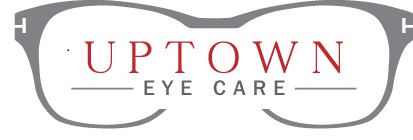114 N State St, Westerville OH 43081 614-882-0851 [email protected]
- Navigation
- Home
- Forms
- Services
- » Services Overview
- » Thorough Eye Examinations
- » Low Vision Evaluations
- » Optical Boutique
- » Contact Lens Fitting
- » Exams for Kids
- » Infant Exams
- About
- » About Our Office
- » Staff
- » History of the Location
- » Sharing Sight
- Products
- » Frames
- » Spectacle Lenses
- » » Lens Overview
- » » Lens Design
- » » Lens Material
- » » Lens Coatings
- » Low Vision Devices
- » Contact Lenses
- » Other Products
- Contact Us
Plastic Lenses
Plastic lenses are made of a polymer known as CR-39. They are lightweight and have good optics and remain a popular choice of lenses, especially if you are looking for an economy pair of backup glasses. We often recommend upgrading to a Trivex or Polycarbonate Lens because they are more impact resistant and safer for your eyes in the event of a trauma.
Polycarbonate Lenses
Polycarbonate lenses are the standard of care for anyone under the age of 18 due to its high level of impact resistance. Safety eyewear and sports goggles are also made of Polycarbonate materials. Polycarbonate lenses are also often lighterweight and thinner than plastic lenses.
This material also blocks 100% of UV light.
Trivex Lenses
Trivex lenses are Dr. Bauder's lens of choice for most patients.
Trivex was introduced to the optical market in 2001 and has gained much popularity. Similar to polycarbonate, Trivex has superior impact resistance, is thinner and lightweight, and has 100% UV protection.
Trivex has a higher Abbe value than polycarbonate. This is a measurement of chromatic aberration that causes distortions in the lens such as halos and fringes around lights and blurred vision in the periphery of the lens. By having a higher Abbe value, Trivex exceeds in optical performance.
High index lenses are plastic lenses with a higher index of refraction. This is a number that measures how well the material bends light. The higher the number, the less amount of material is needed to bend the light. Therefore, the same prescription in a higher index lens will be thinner than in a lesser index lens.
To compare, basic plastic lenses have an index of 1.498. High index plastic lenses have an index of 1.60, 1.64, 1.67, 1.70 and 1.74. The 1.74 lens is the thinnest lens available and a basic plastic lens will be the thickest available. For patients with lower prescriptions, this doesn't make as large of a difference. For patients with higher scripts, a higher index lens is super important to alleviate thickness and weight.
Also, picking out a smaller and more round frame will help reduce edge thickness of a lens.
Hours
Current Hours:
Monday: 9am- 4pm
Tuesday: 9am - 5pm
Wednesday: 9am - 6pm
Thursday: 9am - 4pm
Friday: Closed
Closed 12-1 for lunch daily
Saturday: 1st Saturday 8am -12 pm (by appointment only and hours may vary)
Sunday: Closed
Contact
